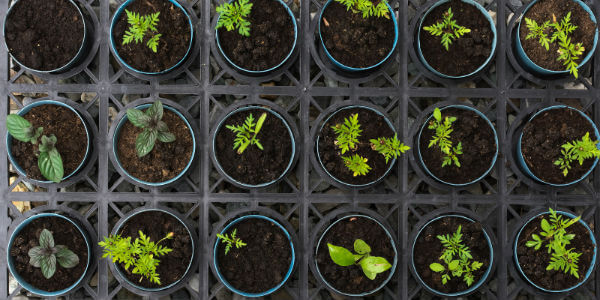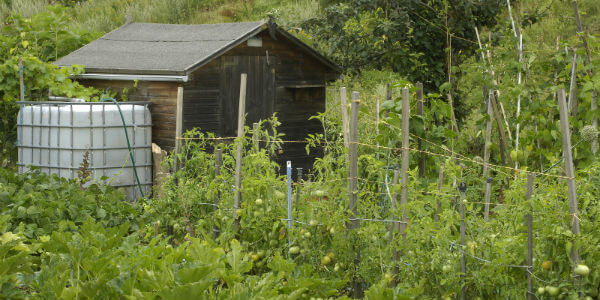
The 2017 FruitGuys Community Fund grant cycle is underway! This year, we received more than 70 letters of intent (LOI) proposing many wonderful sustainability projects from very worthy farms. From the LOIs, our review committee selected 20 finalists based on specific criteria that includes regional distribution, project focus area and feasibility. We’ve invited the following farms to proceed with the application process:
Urban Tree Connection, based in Philadelphia, is a ¾ acre urban farm requesting $2,500 to help fund a seed-saving project and education program.
Chicago Patchwork Farms in Illinois is hoping to receive a $5,000 grant from the Community Fund so it can purchase an Ice freezer, some solar panels, and a lean-to as part of its effort to can create a neighborhood “greens” program on its ½ acre urban farm.
Foxtrot Organic Farm, from St. Charles, Illinois, is looking to create a pollinator hedgerow as well as a contribution to help purchase a tilther tool. This six-acre suburban farm currently offers 115 different crops; the grant would help it increase its range of organic produce.
Byars Family Farm is a rural farm in Ardmore, Oklahoma. This year it has applied for a FruitGuys community grant so that it can purchase a Hoop house and mulch layer. The farm serves the local community and hopes to help the Chickasaw nation.
Songbird Farm is a rural 13-acre farm based in Unity, Maine. A grant would be used to purchase a rainwater catchment system. Collected rainwater from the barn roof would irrigate hoop house crops.
Bertrand Farm is an 8-acre educational farm in Niles, Missouri. This grantee finalist would like to receive $5,000 from the FruitGuys so it can build a perennial food project.
Clover Valley farm is based in Duluth, Minnesota. It is an 8-acre rural farm and would use a $2,500 grant to help build a “water wall” and a thermal mass capture system.
Soil Born Farms would like a $5,000 grant for its urban farm. Based in Rancho Cordova, California, the hope is to purchase a no-till seed drill. Funds would also be used to improve water conservation, pest control, soil health as well as working on energy efficiency.

Marsteller Farm, based in Freeland, Maryland, wants a $5,000 grant to help extend its growing season and diversify crops. Funds would also enable an increase of on-site pollinators.
Bryant Family is a finalist grantee looking for $3,500 so it can plant fruit trees and start a veteran training program on its 16-acre rural farm, based in Mineral Point, Wisconsin.
GreenLeaf Youth farm serves the youth of Denver, Colorado. It would like a grant of $5,000 to purchase seeds, soil, mulch and irrigation for its 1-acre urban farm.
Sarvodaya Farm in Diamond Bar, California, would like to use $5,000 to help grow four California native perennial hedgerows interplanted with California wildflowers and drought tolerant fruit trees, as well as producing a farmer training program.
Heartbeet is an 114-acre farm in Hardwick, Vermont. It would like $5,000 funding for soil and crop improvements in its hay fields and grow cover crops. The hay harvested from its fields feed livestock.
Saturn Farms in Ogden, Illinois, requests $5,000 to help to develop innovative intercrop practices on its blackcurrant farm. Funds would also allow the purchase of asparagus crowns, native prairie seed and chicken tractor materials.
Puna Chocolate is a 3-acre rural farm in Pahoa, Hawaii. A grant would be used to purchase “tree cages” for cacao seedlings.
Treasa’s Treasures is a small half-acre farm in Munising, Michigan. A $2,000 grant would enable the purchase of beehives, a honey extractor, protective gear, drip tape irrigation, soil block tools, seeder, weeding tools, seed saving supplies and pollinator plants for its rural farm.
Beautiful Edibles from Newburgh, Indiana, is a 1-acre suburban farm and would like $4,500 so it can buy a High tunnel.
Blackhawk Courts are hoping to receive $4,100 so it can carry out a soil test. While creating compost, cover crops and perennials, the goal is to improve general soil health and attract and support pollinators.
The Ghettostead farm wants to expand its education workshops and growing site. It teaches low-income community members about permaculture and aquaponics. For this, the 1-acre urban Los Angeles-based farm is hoping to receive $5,000.
Closer To The Heart from Berkshire, New York, would like a grant of $3,500 for its rural farm. With the money, it plans to purchase cover crops, establish a 2-acre natural meadow with bee forage, and purchase a composting toilet.
Our review committee will read and discuss the 2017 grantee finalist applications in detail and vote on up to 10 farms to fund this year. It’s not too late to get involved! There’s still time to join our volunteer review committee. Interested?




